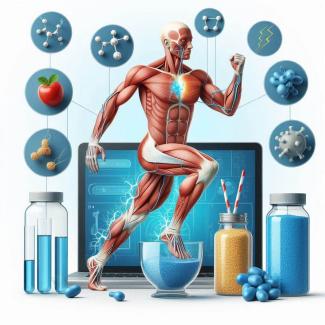
Magnesium is an essential mineral that plays a crucial role in various bodily functions, including muscle and nerve function, blood glucose control, and bone health. A magnesium deficiency can lead to a range of symptoms and health issues. Here are some of the first signs of magnesium deficiency and the tests that can help diagnose it:
Signs of Magnesium Deficiency:
- Muscle Cramps and Spasms: Muscle cramps, twitches, and spasms are common early signs of magnesium deficiency. This can affect various muscle groups in the body.
- Fatigue and Weakness: Low magnesium levels can lead to increased fatigue, weakness, and a general lack of energy.
- Nausea and Vomiting: Nausea and vomiting may occur, especially in severe cases of magnesium deficiency.
- Loss of Appetite: A reduced appetite can be an early symptom of magnesium deficiency.
- Tingling and Numbness: Some people may experience tingling and numbness, known as paresthesia, as a result of magnesium deficiency.
- Abnormal Heart Rhythms: Irregular heart rhythms (arrhythmias) can be a more serious symptom of magnesium deficiency and may require immediate medical attention.
- Personality Changes: Some people with magnesium deficiency may experience mood changes, such as increased anxiety or depression.
Tests to Diagnose Magnesium Deficiency:
If you suspect you have a magnesium deficiency or are experiencing these symptoms, it's important to consult a healthcare professional for a proper diagnosis. They may recommend one or more of the following tests:
- Serum Magnesium Test: This blood test measures the amount of magnesium in your blood. However, it may not be the most accurate indicator of magnesium status because the body tightly regulates blood magnesium levels.
- Red Blood Cell Magnesium Test: This test measures the level of magnesium in red blood cells, which can provide a more accurate reflection of your magnesium status. Magnesium inside red blood cells is more stable and less affected by dietary intake.
- Magnesium Loading Test: In this test, you'll be given a magnesium supplement to take, and your urine will be collected over a 24-hour period. The amount of magnesium excreted in your urine can help determine your magnesium absorption and retention.
- Magnesium Challenge Test: This test involves administering a magnesium infusion and monitoring your body's response to it. Your magnesium excretion in urine will be measured before and after the infusion to assess your magnesium status.
- Ionized Magnesium Test: This test measures the level of ionized (free) magnesium in your blood, which represents the biologically active form of magnesium.
- Hair Mineral Analysis: While not a blood test, analyzing the mineral content in a hair sample can provide information about your magnesium levels over an extended period. Hair mineral analysis is sometimes used in conjunction with blood tests.
Your healthcare provider will determine which test is most appropriate for your specific situation. It's important to follow their guidance and not self-diagnose or self-treat a potential magnesium deficiency, as taking excessive magnesium supplements without medical supervision can have adverse effects. Always consult with a healthcare professional for proper evaluation and guidance on addressing magnesium deficiency if it is diagnosed.






